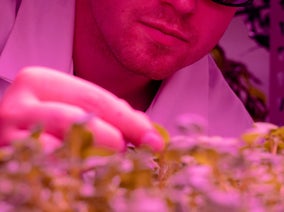In the world of horticulture, lab tissue culture is a remarkable technique used for growing plants in a controlled environment. It's like a plant nursery in a lab, ensuring that each plant is a genetic copy of its parent. But why is having a quality lab so crucial, and what are the risks of opting for a cheaper one? Let's explore the advantages of having your own lab and the control it offers for nurturing young plants and creating new hybrids.

Understanding Lab Tissue Culture
Lab tissue culture, also known as micropropagation or in vitro propagation, involves growing plant cells, tissues, or organs in a clean and controlled setting. It's a bit like raising plants in a sterile laboratory, where conditions are perfect for growth, and contamination is kept at bay. This process allows for rapid plant reproduction while maintaining genetic consistency.
Why a Quality Lab Matters
1. Ensuring Genetic Purity: A quality lab guarantees that your plants remain genetically identical to their parent plants. This is vital for horticulturists who want uniform and predictable results.
2. Disease-Free Plants: A well-maintained lab minimizes the risk of contamination, leading to disease-free plant material. This is especially important when dealing with valuable or vulnerable plant species.
3. Customization: Having your lab gives you the power to control every aspect of the growth process. You can fine-tune conditions like light, temperature, and nutrients to optimize plant growth.


Risks of Choosing a Cheap Lab
Opting for a cheap lab might seem like a cost-saving measure, but it comes with risks:
1. Contamination Concerns: Cheaper labs might cut corners on cleanliness, leading to contamination issues that can harm your plants.
2. Genetic Variability: Inexpensive labs may not maintain the genetic consistency you need, resulting in variations among your propagated plants.
3. Unreliable Results: The lack of control in cheaper labs can lead to inconsistent results, affecting the quality of your plants and hybrids.
The Benefits of Having Your Own Lab
Having your lab offers several advantages:
1. Flexibility: You have complete control over your plant-growing environment, allowing you to adapt to changing needs and experiment with new techniques.
2. Quality Assurance: You can ensure the highest standards of cleanliness and genetic fidelity, giving you confidence in your plant material.
3. Customization: You can tailor conditions to suit the specific requirements of different plant species, maximizing their growth potential.
4. Cost Efficiency: In the long run, having your lab can be cost-effective, as you won't face ongoing expenses associated with outsourcing to labs of varying quality.

In the world of horticulture, the quality of your lab can make or break your success. Investing in a high-quality lab ensures genetic purity, disease-free plants, and full control over the growth process. While choosing a cheaper lab may seem tempting, it often leads to contamination, genetic variability, and unreliable results. Having your lab provides flexibility, quality assurance, customization, and long-term cost efficiency. So, if you want to excel in nurturing young plants and creating new hybrids, having your own lab is the way to go.

